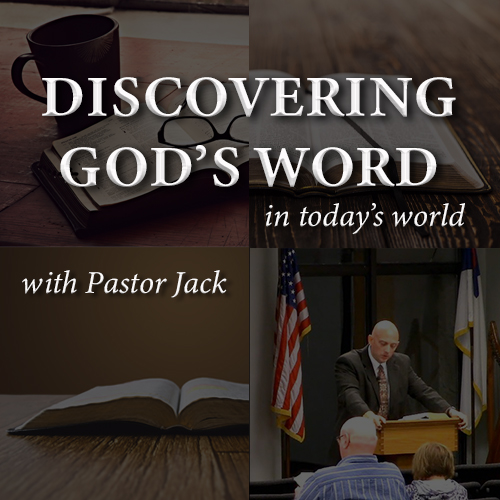
The spiritual gatekeepers of Christ’s day were not pointing people to God. Instead, they were enriching and empowering themselves. The court of the Gentiles was meant as an outreach center to the nations, but the place of worship was crowded out by money changers and “approved temple sacrifices.” “All nations” were coming to worship God, but the “den of thieves” (High Priests: Caiaphas and Annas) were ripping off the pilgrims seeking Jehovah. Christ cleansed this court twice: once at the beginning of His public ministry and again at the end declaring:
“…Is it not written, My house shall be called of all nations the house of prayer? but ye have made it a den of thieves.” (Mark 11:17)
Man-made religion finds the Jesus of the Bible as competition to be squashed. “The enemy of my enemy is my friend.” In Christ’s day, False religion had an “ecumenical movement” putting aside theological differences in order to overthrow the Son of God. Pharisees (legalists) and Sadducees (liberals) had a united front. Political factions were dissolved as well. Pilate befriended his long-time enemy Herod. The Pharisees and Sadducees despised Roman occupation, but they despised Christ more. Religion and government came together to crucify the Son of God.
Having paid Judas thirty pieces of silver for Jesus, the religious trial was about to begin. This trial would be in three phases: Jesus before Annas (considered the true high priest), then Caiaphas (the Roman-appointed high priest), and finally the Sanhedrin (the ruling counsel of seventy, made up of Pharisees and Sadducees). What religion did not realize was that no one could take away Christ’s life. Jesus would lay down His life for His sheep. During the night and morning of Jesus’ religious trial, Jesus was not really the one being tried. Religion was on trial.
“Therefore doth my Father love me, because I lay down my life, that I might take it again. No man taketh it from me, but I lay it down of myself. I have power to lay it down, and I have power to take it again. This commandment have I received of my Father.” (John 10:17-18)
At The Religious Trial, False Witnesses Were Confounded:
And the chief priests and all the council sought for witness against Jesus to put him to death; and found none. For many bare false witness against him, but their witness agreed not together. (Mark 14:55-56)
It is an act in futility to try to find fault with Jesus. Enemies of “the Truth,” always lose! Truth always wins, “For we can do nothing against the truth, but for the truth” (II Corinthians 13:8). John 14:6: “I am the way, the truth, and the life,” is a stumbling block to every false way. The outrage at Christ’s claims only proved false religion guilty. Religion in the trial of Jesus was found guilty, convicted and condemned.
But he held his peace, and answered nothing. Again the high priest asked him, and said unto him, Art thou the Christ, the Son of the Blessed? And Jesus said, I am: and ye shall see the Son of man sitting on the right hand of power, and coming in the clouds of heaven. Then the high priest rent his clothes, and saith, What need we any further witnesses? Ye have heard the blasphemy: what think ye? And they all condemned him to be guilty of death. (Mark 14:61-64)
“I am trying here to prevent anyone saying the really foolish thing that people often say about Him: ‘I’m ready to accept Jesus as a great moral teacher, but I don’t accept His claim to be God.’ That is the one thing we must not say. A man who was merely a man and said the sort of things Jesus said would not be a great moral teacher. He would either be a lunatic—on a level with the man who says he is a poached egg—or else he would be the Devil of Hell. You must make your choice. Either this man was, and is, the Son of God: or else a madman or something worse. You can shut Him up for a fool, you can spit at Him and kill Him as a demon; or you can fall at His feet and call Him Lord and God. But let us not come with any patronizing nonsense about His being a great human teacher. He has not left that open to us. He did not intend to.”
– C.S. Lewis, Mere Christianity (1952; Harper Collins: 2001)
The False Witnesses Couldn’t Agree, but The True Witnesses Could Testify:
Parents could say, “Jesus gave me my child back!” (The widow from Nain’s son, Jairus’ daughter, the man with a lunatic son, the Samaritan woman’s demon-possessed daughter)
The sick could say, “Jesus touched me and now I’m whole!” (Peter’s mother in-law, the centurion’s servant, the man with a withered hand, the woman with an issue of blood, the man by the pool of Bethesda…)
The lepers could say, “I was disfigured, desensitized, and shut off from my family and temple worship, but Jesus touched me and now I am clean!”
The lame could say, “I didn’t have the ability to walk with Jesus, but now I am made whole.”
The blind could say, “My eyes have been opened — ‘I was blind but now I see!’”
Those raised to life could say, “I was dead but Jesus gave me new life!”
The saved can say, “I was a prodigal away from the Father, I was sick and now am made whole, I was the leper shut out of relationship with my family and temple but now I’m clean. I was the lame but now I am whole — I can walk with God. I was blind but now I see. I was dead in trespasses and in sins, but now I have been resurrected and walk in the newness of life!”
